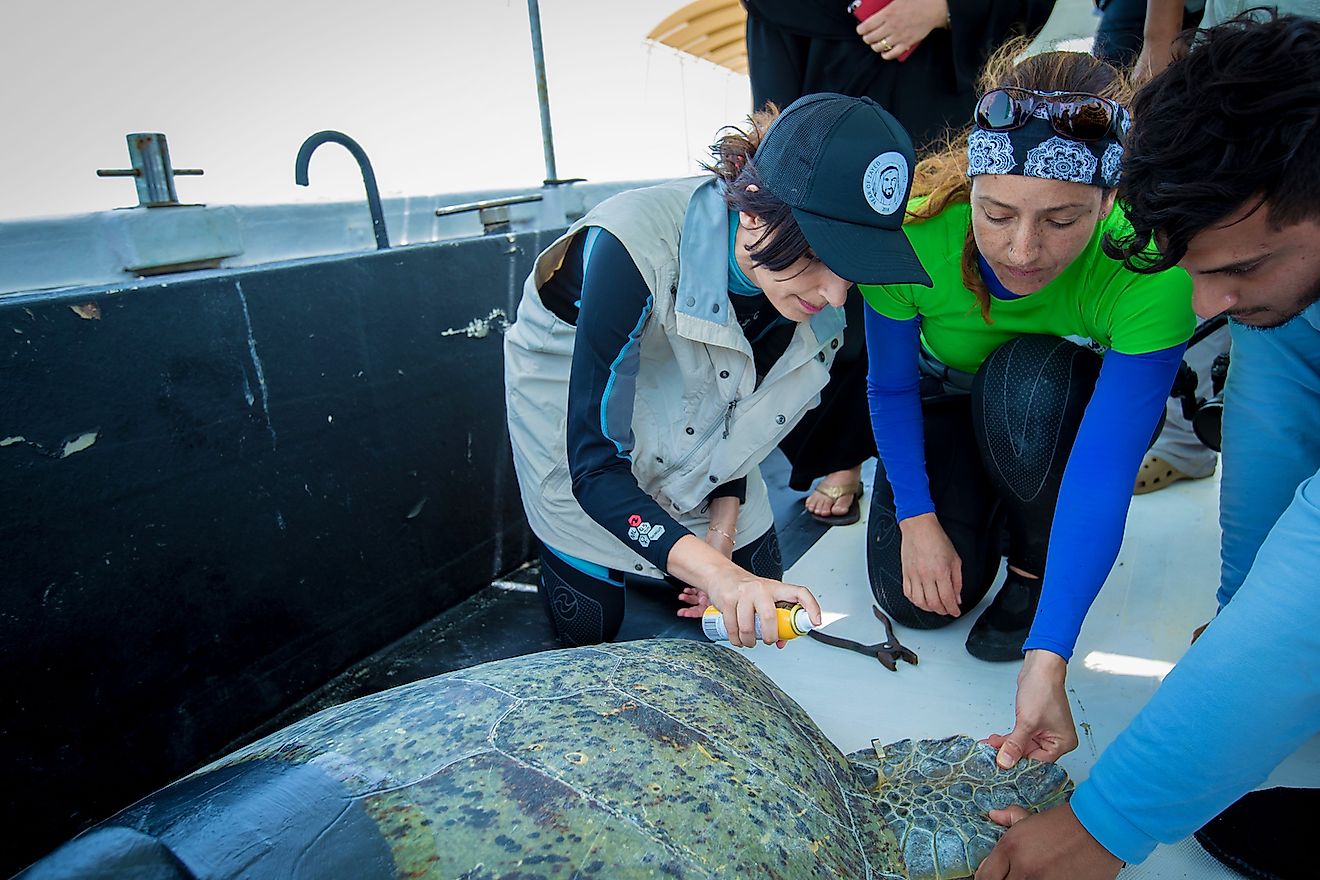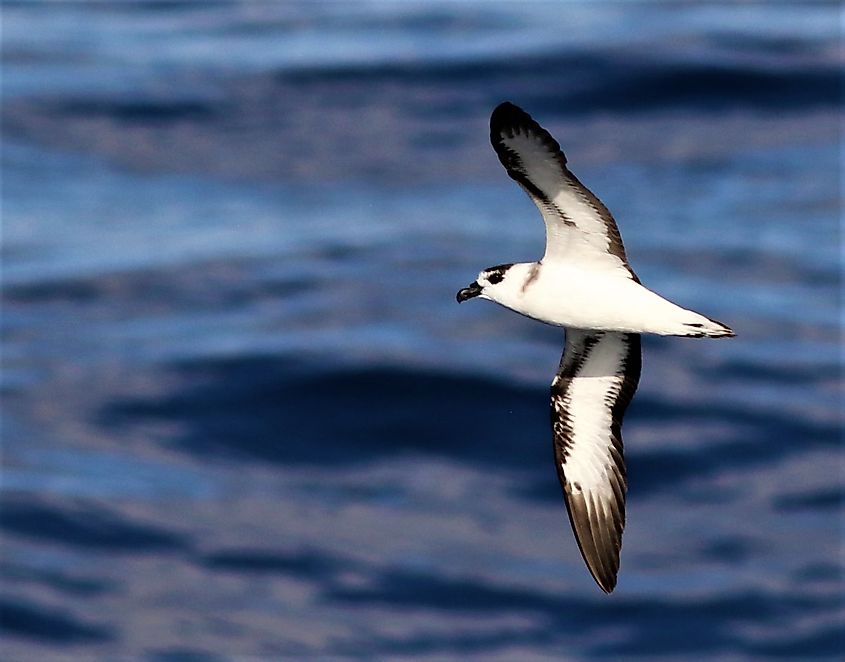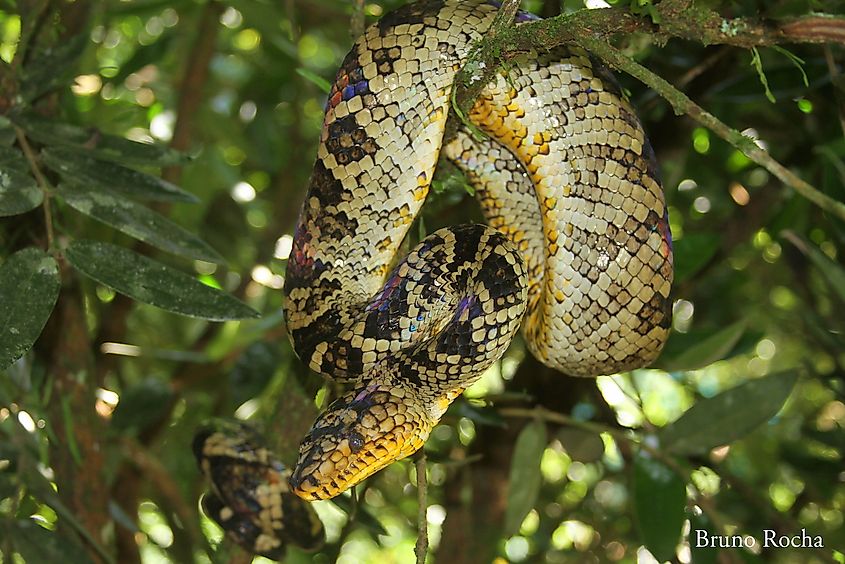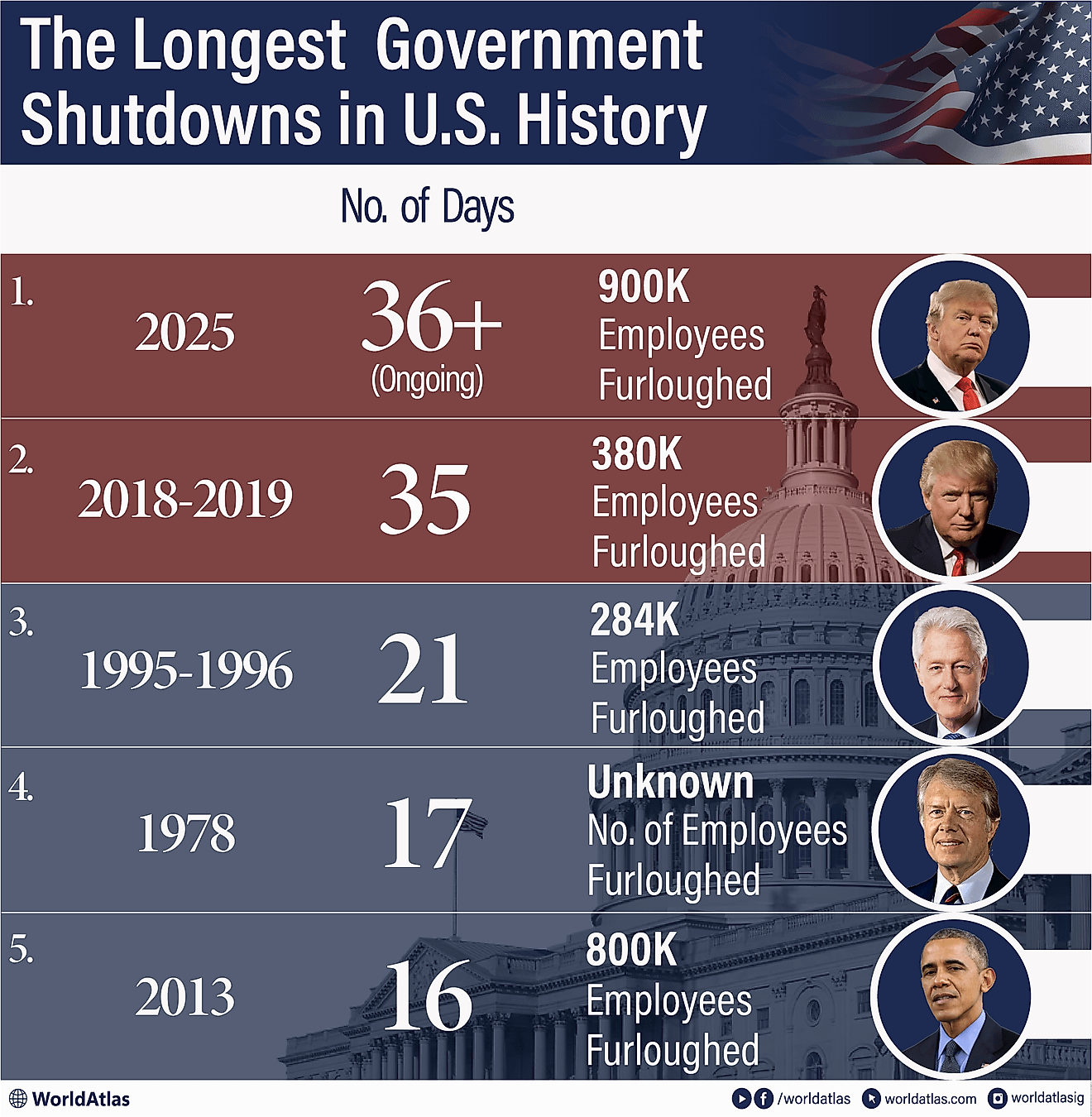COVID-19 Has Jeopardized Wildlife Conservation Activities Worldwide, Finds MBZ Fund Survey

Not just humans, but wildlife too has severely suffered from the detrimental impact of the COVID-19 pandemic and its associated lockdowns as revealed by a recent survey. While the disease claimed over half a million human lives, it also wreaked havoc on the global economy. The negative outcomes of the latter directly affected the funding of critical species conservation activities and fieldwork. Hard-earned successes in wildlife conservation work now stand threatened and push the species further to the brink.
What The Survey Revealed
The survey covering over 300 conservationists in 85 countries was conducted by the Abu Dhabi-based Mohamed bin Zayed Species Conservation Fund or MBZ Fund. It is a philanthropy that provides grants to threatened species conservation projects across the globe. Conducted in April and May 2020, here are some of the most major findings of the study:
- Of those surveyed, 83% claimed that their conservation fieldwork was adversely affected by the pandemic.
- Over 70% of planned conservation activities had to be either canceled or postponed.
- The pandemic also negatively affected the careers or jobs of 40% of surveyed conservationists.
- The pandemic also had negative consequences on operations at the organizational level. 66% reported that their organizations were impacted while 58% claimed that financial difficulties had struck their organization due to the pandemic. 50% of the respondents also mentioned that donations to their organizations have decreased.
- Unfortunately, 22% of conservation organizations covered by the survey are also planning to eliminate jobs.
- There is little evidence to prove that species and their habitats have benefited from the lockdowns.
According to the MBZ Fund report, the closure of zoos, wildlife parks, aquariums, and a general decline in ecotourism are some of the factors leading to the financial setbacks plaguing many of the conservation organizations during this time of crisis.
Also, reports of enhanced poaching in the absence of tourists and restricted movements of protected area staff, have surfaced. Loss of income and rising unemployment levels appear to have attracted many to kill wildlife for monetary gain during this time.
Lockdowns also prevented many conservation teams from carrying out their fieldwork activities that were urgently needed leaving the wildlife protected by them vulnerable to threats.
MBZ Fund: Funding Conservation During The Pandemic

Despite the COVID-19, the MBZ Conservation Fund continued to invite grant applications for the current year, providing an opportunity to many conservationists struggling to meet up with the deadlines to receive funds to continue with their work. The MBZ Conservation Fund was established in 2009 to provide small grants of $25,000 or less to individual species conservation initiatives worldwide.
"The Mohamed bin Zayed Species Conservation Fund (MBZ Fund) supports boots-on-the-ground, get-your-hands-dirty species conservation projects worldwide for all types of species, including amphibians, birds, fish, fungi, invertebrates, mammals, plants, and reptiles. To-date, the MBZ Fund has supported more than 2,100 projects in over 160 countries targeting around 1,350 species and subspecies," Razan Al Mubarak, Founding Managing Director of The MBZ Conservation Fund, informed World Atlas.
"The conservationists we support are the first line of defense against the extinction crisis. Their dedication, passion, expertise, and presence in the field help prevent species from further decline. So we strongly support their efforts, as well as the species for which they work so tirelessly, across the world. The MBZ Fund has provided support for projects ranging from Proyecto Titi’s efforts in Colombia for the Cotton-top Tamarin to the amphibian work of South Africa’s “frog lady,” Dr. Jeanne Tarrant. The support of the MBZ Fund is truly global in its reach and very supportive of the conservationists who continue to do great work," she further stated.

Over the years since its inception, the MBZ Fund has supported many projects that went on to become a grand success, restoring nearly lost species to viable populations. Ms. Al Mubarak mentioned some of the most inspiring projects funded by the organization in recent years:
"We are particularly excited about the recent discovery of the breeding and nesting grounds of the black-capped petrel, the rediscovery of the Cave Squeaker frog in Zimbabwe after almost 60 years, and the rediscovery of the Cropan’s boa in Brazil after almost 65 years. Also, our small grants can be leveraged into even more support: a $25,000 grant provided to a freshwater fish project in Mexico project secured an additional $250,000 in funding, while another small grant of $12,000 for pangolin DNA research led to the recipient winning the $250,000 USAID WIldlife Tech Challenge in 2016. For every one of these success stories, there are literally hundreds more. While it does say a lot about the effectiveness of the MBZ Fund, it says even more about the innovation, hard work, and dedication of our grant recipients around the world."

She also provided an important note for all aspiring to apply for the MBZ Fund grant in the future:
"Anyone can apply for a grant from the Mohamed bin Zayed Species Conservation Fund. We provide support to individuals, community groups, students, academics, government officials, and people from all walks of life and professions. We are particularly interested in direct, boots-on-the-ground species conservation efforts for the world’s most endangered or less well known or understood species. It doesn’t matter if you are interested in fungi or lichen or mammals or reptiles. We will potentially support projects for all species types, particularly those that don’t typically receive conservation attention or funding. In many ways we are more interested in providing support for a small elephant shrew than we are for the elephant because the shrew typically receives fewer opportunities for funding than the African or Asian elephant," she said.
In the end, it is hoped that with the help of MBZ Conservation Fund and other concerned organizations, wildlife conservation work will continue unabated and be restored to pre-pandemic levels. Like all other "essential activities," the well-being of the natural world around us is vital to our survival.
"All of our grant recipients give us hope for a better, more natural and abundant world. As a result, we are conservation optimists. We know that the world is a beautiful place with many amazing creatures, and effective conservation work is all around us. We can and we will overcome the challenges we face through the great work, innovation, and persistence of our grant recipients, even when faced with seemingly hopeless situations," Ms. Al Mubarak gave us hope for a brighter future.











